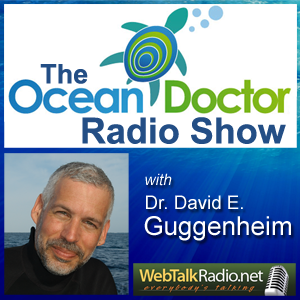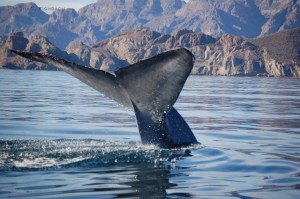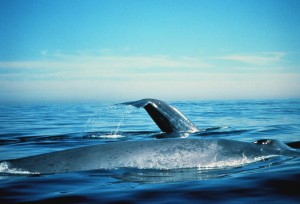Posts
Great Whales Still Face Grave Threats
/in Action Alert, Featured, News/by Ocean Doctorby Gershon Cohen, Ph.D. — Co-Director, Great Whale Conservancy
The Great Whales need our help. They face multiple threats today in many parts of the world: “scientific whaling,” ship strikes, habitat encroachment, decreasing food supplies, ocean acidification, etc.; it is up to us to take on these threats and do what we can to protect these magnificent, sentient beings.
The Great Whale Conservancy was created in 2010 to answer this call, and the first problem we are focusing on is the ship strike issue that plagues whales in oceans around the planet –where great whales and cargo ships, oil tankers, and cruise ships try to occupy the same place at the same time. The whales have no choice: they need to follow their food and consumes tons of protein every day to survive. The ships have a choice: they can adjust their transits to minimize the time they spend in Great Whale habitat. Read more
World’s Largest Animals, Blue Whales, Threatened by Strikes from Ships
/in Ocean Newswire/by Ocean DoctorWhale populations, still recovering from centuries of hunting, continue to face a myriad of threats. But it’s often a surprise that one of the leading causes of death among whales around the globe is ship strikes. Now researchers are concerned that blue whales — the largest animals that have ever lived on the planet — are especially vulnerable to ship strikes in the Indian Ocean, according to the New York Times:
Read more
NOAA and France Partner to Protect Whales
/in Ocean Newswire/by NewswireNOAA and France’s Protected Areas Agency have signed a “sister sanctuary” agreement to support the protection of endangered humpback whales that migrate annually more than 3,000 miles between NOAA’s Stellwagen Bank National Marine Sanctuary off the Massachusetts coast and Agoa Marine Mammal Sanctuary in the Caribbean’s French Antilles.
NOAA National Marine Sanctuary News
Note: Newswire stories are provided as a courtesy of OceanDoctor.org. Content of these articles is provided by external sources.
Have We Saved the Whales?
/in Podcast/by Ocean Doctor |
 |
September 26, 2011: It was a battle cry in the ’60s and ’70s — “Save the Whales” bumper stickers reflected a burgeoning green movement and deep concern about the decimation of the world’s whale populations. But decades later, do the whales still need saving? The important answer and much more about whales — including his dramatic rescue of humpback whale, “Valentina” — from Michael Fishbach, co-founder and co-director of The Great Whale Conservancy. Also: The planet’s missing heat may be found; why you should NOT eat a ray to save the bay; and Happy Birthday, Greenpeace!
The Ocean Doctor airs weekly on WebTalkRadio.net. Want to listen on your iPod, iPhone or mp3 player? Download the mp3 file or subscribe on iTunes and don’t miss a single episode. Or listen to us on your iPhone, Android phone, WebOS phone, BlackBerry or tablet, including the iPad, with the free Stitcher SmartRadio app. See the complete list of episodes. Follow The Ocean Doctor on Twitter — Become a Fan on Facebook! Submit a question and I’ll try to answer it on the air. Even better, record your question or comment on our special message line and I might play it on the air. Call: (805) 619-9194. You can also leave questions and comments for this episode below. Like the show? Learn how to become a sponsor. Read more
Podcast: Play in new window | Download
Eating Our Way Out of the Ocean’s Problems — A Chef’s Perspective
/in Podcast, Sustainable Aquaculture/by Ocean Doctor |
? |
August 15, 2011: Our special guest is National Geographic Fellow and acclaimed chef, author, and speaker Barton Seaver, who seeks to restore our relationship with the ocean, the land, and with each other through dinner. His new book is For Cod and Country: Simple, Delicious, Sustainable Cooking. If you’re not hungry, you will be by the end of this show! Also: A giant sea monster discovered in the UK and a close encounter with the largest animal that’s ever lived.
The Ocean Doctor airs weekly on WebTalkRadio.net. Want to listen on your iPod, iPhone or mp3 player? Download the mp3 file or subscribe on iTunes and don’t miss a single episode. Or listen to us on your iPhone, Android phone, WebOS phone, BlackBerry or tablet, including the iPad, with the free Stitcher SmartRadio app.?See the complete list of episodes. Follow The Ocean Doctor on Twitter — Become a Fan on Facebook! Submit a question and I’ll try to answer it on the air. Even better, record your question or comment on our special message line and I might play it on the air. Call: (805) 619-9194. You can also leave questions and comments for this episode below. Like the show? Learn how to become a sponsor. Read more
Podcast: Play in new window | Download
VIDEO: A Whale’s Unforgettable “Thank You”
/in Featured, Flotsam/by Ocean DoctorAs featured in The Ocean Doctor Radio Show, we’re pleased to present an amazing, inspirational video documenting the “rescue of a nearly-dead humpback whale, hopelessly entangled in fishing gear in the Sea of Cortez.” Michael Fishbach, co-founder of Earth Island Institute’s, Great Whale Conservancy, and his family and friends came to the whale’s rescue and were awestruck by what the whale had to give them in return. A hearty Ocean Doctor salute to Michael and the Great Whale Conservancy!
[youtube EBYPlcSD490 590 356 ]
National Geographic’s Newest Explorer
/in Cuba, Podcast/by Ocean Doctor |
 |
August 1, 2011: We visit National Geographic Headquarters in Washington, DC to meet the newest National Geographic “Explorer in Residence,” Dr. Enric Sala and his important work on the “Pristine Seas” program with expeditions to the last remaining pristine areas in the ocean. We also hear the incredible story of a humpback whale, rescued at the brink of death, that said “thank you” to its human rescuers. And we hear the tragic story of the loss of one of our colleagues in Cuba.
The Ocean Doctor airs weekly on WebTalkRadio.net. Want to listen on your iPod, iPhone or mp3 player? Download the mp3 file or subscribe on iTunes and don’t miss a single episode. Or listen to us on your iPhone, Android phone, WebOS phone, BlackBerry or tablet, including the iPad, with the free Stitcher SmartRadio app. See the complete list of episodes. Follow The Ocean Doctor on Twitter — Become a Fan on Facebook! Submit a question and I’ll try to answer it on the air. Even better, record your question or comment on our special message line and I might play it on the air. Call: (805) 619-9194. You can also leave questions and comments for this episode below. Like the show? Learn how to become a sponsor. Read more
Podcast: Play in new window | Download
A Sea Turtle Is Born in Alaska
/in Bering Sea Expedition, Conservation, Featured, Ocean Doctor's Reflections/by Ocean Doctor I awakened at 4am in my bunk to something strange. The ship was still. After enduring two days of pounding seas and gale-force winds, we had at last arrived at the island of Unalaska and were nearing the port of Dutch Harbor. A few hours later, juggling my cameras, I tried in vain to capturethe profound tranquility of that early Alaskan morning as dawn’s gentle glow painted small swaths of green across the surrounding mountains atop a canvas of deep blues and grays.An incredible journey was nearing its end, and I was reluctant to let go. So was the wildlife. In a moment, the morning silence was replaced by shrieks from the deck below. They were shrieks of joy as once again we were surrounded by whales as a pod of humpbacks divided itself evenly and passed closely along both sides of us, filling the morning air with their spouts and flukes. Read more
I awakened at 4am in my bunk to something strange. The ship was still. After enduring two days of pounding seas and gale-force winds, we had at last arrived at the island of Unalaska and were nearing the port of Dutch Harbor. A few hours later, juggling my cameras, I tried in vain to capturethe profound tranquility of that early Alaskan morning as dawn’s gentle glow painted small swaths of green across the surrounding mountains atop a canvas of deep blues and grays.An incredible journey was nearing its end, and I was reluctant to let go. So was the wildlife. In a moment, the morning silence was replaced by shrieks from the deck below. They were shrieks of joy as once again we were surrounded by whales as a pod of humpbacks divided itself evenly and passed closely along both sides of us, filling the morning air with their spouts and flukes. Read more
Events
Nothing Found
Sorry, no posts matched your criteria
Fax: +1 (202) 888-3329
P.O. Box 53090
Washington, DC 20009
Just Released: The Remarkable Reefs of Cuba: Stories of Hope from the Ocean Doctor by Dr. David E. Guggenheim, President of Ocean Doctor


